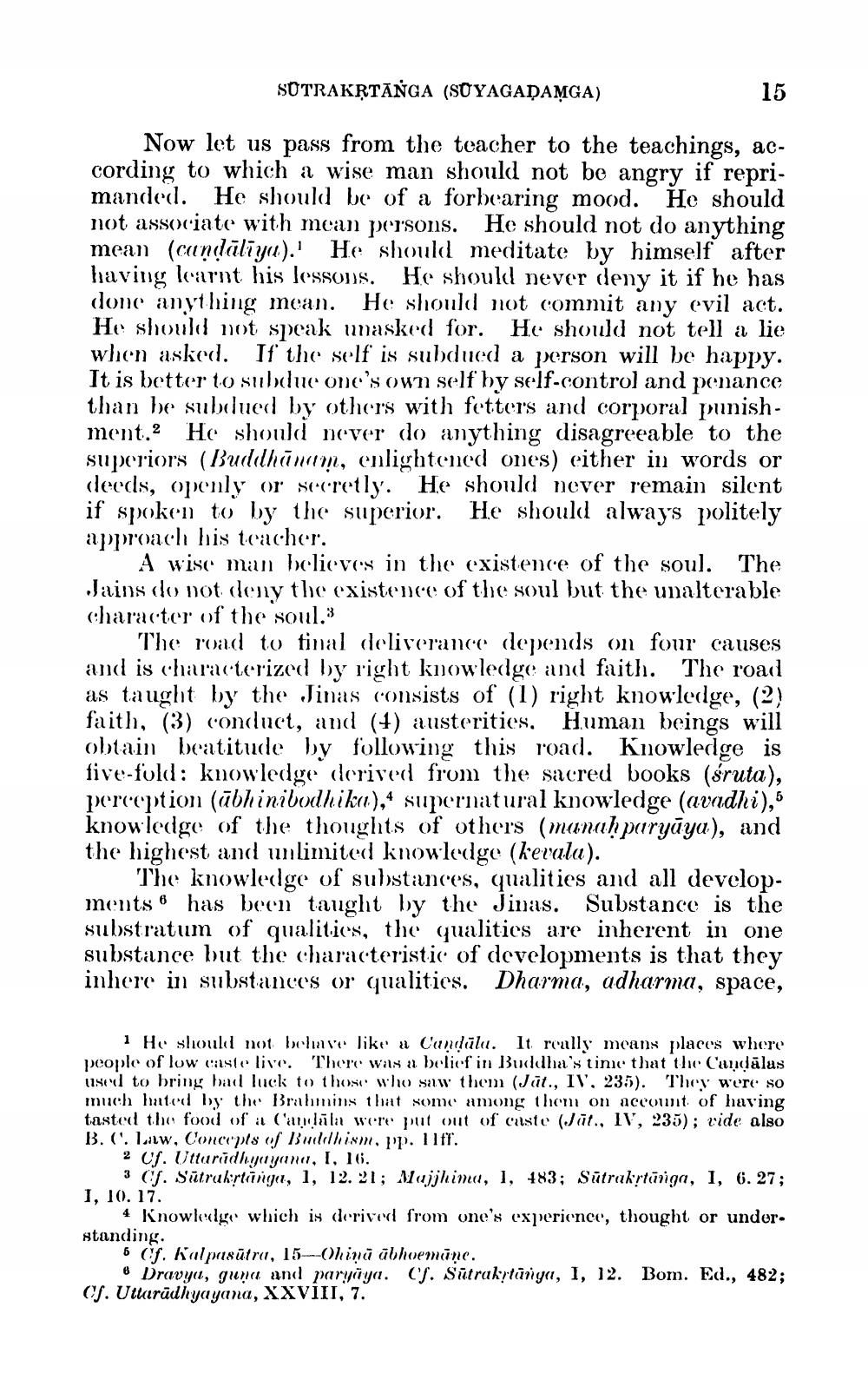________________
SUTRAKṚTANGA (SUYAGADAMGA)
Now let us pass from the teacher to the teachings, according to which a wise man should not be angry if reprimanded. He should be of a forbearing mood. He should not associate with mean persons. He should not do anything mean (candaliya). He should meditate by himself after having learnt his lessons. He should never deny it if he has done anything mean. He should not commit any evil act. He should not speak unasked for. He should not tell a lie when asked. If the self is subdued a person will be happy. It is better to subdue one's own self by self-control and penance than be subdued by others with fetters and corporal punishment. He should never do anything disagreeable to the superiors (Buddhanam, enlightened ones) either in words or deeds, openly or secretly. He should never remain silent if spoken to by the superior. He should always politely approach his teacher.
A wise man believes in the existence of the soul. The Jains do not deny the existence of the soul but the unalterable character of the soul.
15
The road to final deliverance depends on four causes and is characterized by right knowledge and faith. The road as taught by the Jinas consists of (1) right knowledge, (2) faith, (3) conduct, and (4) austerities. Human beings will obtain beatitude by following this road. Knowledge is five-fold: knowledge derived from the sacred books (śruta), perception (abhinibodhika), supernatural knowledge (avadhi), knowledge of the thoughts of others (manaḥ paryāya), and the highest and unlimited knowledge (kevala).
The knowledge of substances, qualities and all developments has been taught by the Jinas. Substance is the substratum of qualities, the qualities are inherent in one substance but the characteristic of developments is that they inhere in substances or qualities. Dharma, adharma, space,
1 He should not behave like a Candala. It really means places where people of low caste live. There was a belief in Buddha's time that the Candālas used to bring bad luck to those who saw them (Jut., IV. 235). They were so much hated by the Brahmins that some among them on account of having tasted the food of a Candala were put out of caste (Jat., IV, 235); vide also B. C. Law, Concepts of Buddhism, pp. 11ff.
2 Cf. Uttaradhyayana, I, 16.
3 Cf. Sūtrakṛtānga, 1, 12. 21; Majjhima, 1, 483; Sūtrakṛtānga, 1, 6.27; I, 10. 17.
4 Knowledge which is derived from one's experience, thought or understanding.
5 Cf. Kalpasūtra, 15-Ohiņā ābhoemāņe.
Dravya, guna and paryaya. Cf. Sutrakṛtānga, 1, 12. Bom. Ed., 482; Cf. Uttaradhyayana, XXVIII, 7.




